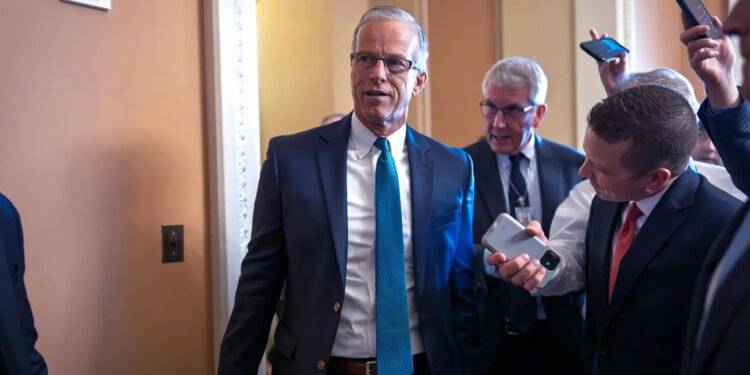
Husneara Choudhury
In a dramatic late-night session, Senate Republicans advanced former President Donald Trump’s controversial tax and spending cuts bill—marking a major step toward reshaping federal fiscal policy ahead of the upcoming elections.
The vote, which took place just before midnight, followed hours of heated debate on Capitol Hill. The bill passed narrowly, with Vice President presiding over the chamber and casting a rare tie-breaking vote, underscoring the razor-thin margins currently defining the Senate.
Supporters of the bill argue it will stimulate economic growth by slashing taxes for corporations and high-income earners, while also reducing federal spending on what they call “bloated” government programs. Critics, however, warn that the cuts disproportionately favor the wealthy and could severely undermine social safety nets, including Medicaid, education funding, and food assistance programs.
“This is about restoring fiscal discipline and rewarding hard work,” said one Republican senator after the vote.
Meanwhile, Democrats decried the legislation as “a gift to the rich at the expense of working families.”
The bill is expected to face fierce opposition in the House, particularly from progressive lawmakers who view it as a return to Trump-era austerity policies. Political analysts say the vote sets the stage for a polarizing budget battle that could shape the narrative heading into the 2026 midterm elections.
Further amendments are expected before the final passage, but Republican leadership has made it clear: this bill is central to their economic platform—and they plan to move swiftly.

























